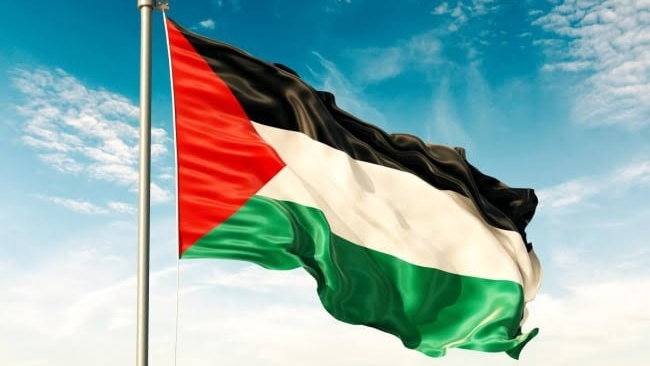Saudi Removes Palestine From school Textbook Maps

Saudi Arabia has made a significant change in its school curriculum for the 2023-2024 academic year by omitting the name of Palestine from maps in social and national studies textbooks. The New Arab reported that recent images from these textbooks show maps of Saudi Arabia and its neighboring countries, but the area traditionally labeled as Palestine is now left unnamed. This is a stark contrast to the 2022 textbooks, which included Palestine.
The revised Saudi curriculum reflects substantial changes from the previous academic year, particularly in terminology related to Israel. Words deemed “hostile” towards Israel, such as “enemy” and “the Zionist enemy,” have been removed. Additionally, references warning of Israeli ambitions in the region and efforts to displace Palestinians have been excised.
The updated textbooks now refer to East Jerusalem as occupied and designate it as the Palestinian capital, rather than the entire city of Jerusalem. Zionism is no longer described as a “racist European movement,” and other critical language towards Israel has been moderated. IMPACT-se, an organization that monitors education, identified 21 instances of anti-Israel sentiment that have been removed from the new textbooks.
These curriculum changes are speculated to be linked to US-mediated negotiations aimed at normalizing relations between Saudi Arabia and Israel. The changes in educational content may be part of broader diplomatic efforts to ease tensions and foster a more favorable environment for potential normalization.
Earlier this month, the US announced it was close to finalizing a defense pact with Saudi Arabia, which could pave the way for Israeli normalization. This potential agreement is seen as a critical step in reshaping Middle Eastern alliances and security dynamics.
However, Riyadh has maintained that it will not establish ties with Israel until Palestinian statehood is recognized. This stance presents a significant challenge, as Israel’s far-right government currently opposes the recognition of Palestinian statehood.
The omission of Palestine from Saudi textbooks could be seen as a move to align more closely with international diplomatic efforts while navigating the complex realities of regional politics. It also reflects broader shifts in Saudi Arabia’s approach to the Israeli-Palestinian conflict and its place in Middle Eastern geopolitics.
As these changes unfold, the implications for Palestinian education and identity in Saudi Arabia remain to be seen. The evolving curriculum may influence the perspectives of future generations and reshape the discourse around one of the region’s most enduring conflicts.





